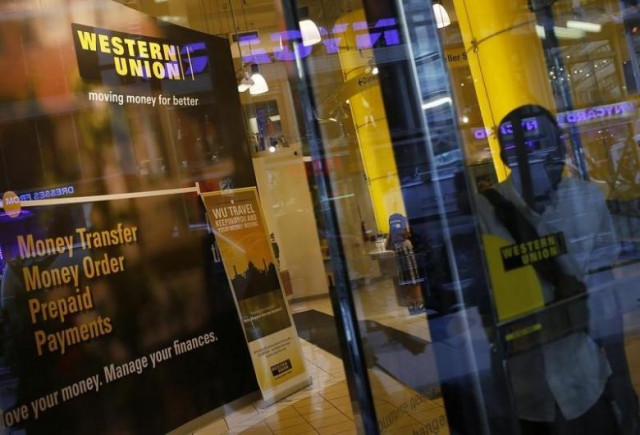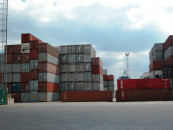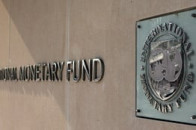Documentary to raise awareness of illegal remittance channels
NBP chief estimates amount sent via Hawala/Hundi to be $6-7b a year

A person walks out of a Western Union branch in New York. PHOTO: REUTERS
To increase attractiveness of legal channels, the bank is also introducing measures to beat the speed of delivering remittances to beneficiaries by Hawala/Hundi operators.
Pakistan, UK firms join hands to offer digital remittance services
“Remittances have become a lifeline for the economy and we cannot afford to lose them anymore,” State Bank of Pakistan Deputy Governor Jameel Ahmed said while addressing the launching ceremony of a TV campaign, comprising of a documentary drama, on Thursday.
Remittances are a major source of foreign exchange for Pakistan and aids in financing imports - especially oil- and reducing the impact of current account deficit which is the biggest challenge to the economy these days.
Pakistan recorded a drop of 3% in remittances to $19.30 billion in fiscal year 2016-17 from $19.91 billion in the preceding year, he said, noting that the trend has reversed in the first two months of the current fiscal year.
NBP President Saeed Ahmed estimated the volume of remittances through illegal channels at $6-7 billion, which is equivalent to around one-third of the legal remittances. The short documentary drama narrates stories of loss of funds by overseas Pakistanis at the hands of Hawala/Hundi operators and uses education to convince people to avoid illegal means.
Remittances down 7% in April
The bank has established a specialised ‘Payment Services and Digital Banking Department’ for increasing pace of sending remittances home. The department will also look into the issues faced by remittance senders like high cost of transaction and unattractive exchange rates.
Published in The Express Tribune, September 22nd, 2017.
Like Business on Facebook, follow @TribuneBiz on Twitter to stay informed and join in the conversation.



















COMMENTS
Comments are moderated and generally will be posted if they are on-topic and not abusive.
For more information, please see our Comments FAQ